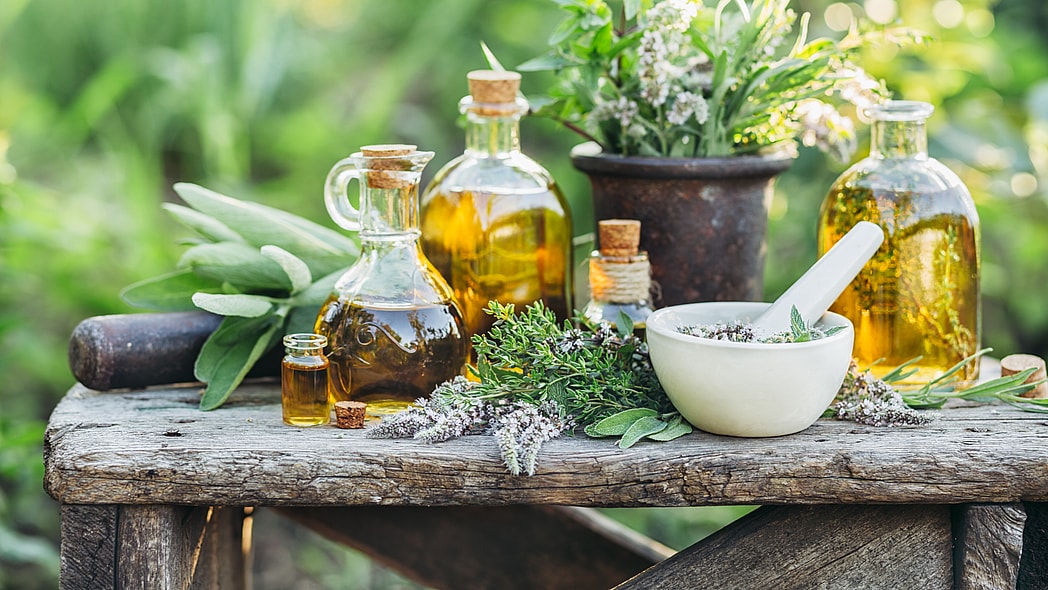In today’s world of modern medicine and synthetic drugs, it’s easy to forget that, for centuries, herbal and natural remedies were the main forms of healing for ages before the advent of modern medicine and synthetic drugs. “Grandma’s remedies” are more than just folklore; they represent a rich and vibrant history of how Black Americans overcame decades of oppression, frequently without the benefit of resources or access to medical treatment.
This article will take a closer look at the history of African American herbalism and explore some of the most popular herbs and remedies. We’ll also examine the ways in which this ancient practice is currently being rediscovered and reimagined.
Herbalism in African American Culture
Herbalism has long been a cornerstone of African American culture, with roots dating back to the days of slavery. Enslaved Africans brought with them a wealth of knowledge about medicinal plants from their homelands.
Early African American herbalism, founded on a strong bond with the land, began when enslaved Africans brought with them the seeds of their homelands, carefully woven into their hair. During slavery, enslaved Africans and their descendants often had limited access to medical care, so herbalism became a crucial way to treat illnesses and injuries. Herbalism was not only a way to connect with the land but a way to find spiritual fulfilment despite the horrors of slavery.

However, a significant portion of the herbal knowledge gained in America was acquired through direct experience. Enslaved Africans and their descendants foraged for plants in the forests and wetlands beyond the bounds of plantation life.
These herbs were often grown in secret gardens. The knowledge of medicinal plants was passed down through generations in their stories and songs. They were used to treat everything from colds and cramps to more serious illnesses.
Today, many of these same herbs are gaining popularity as more and more people turn to natural remedies to prolong their health and well-being. African American herbalism offers a wealth of knowledge about the healing power of plants.
Popular Herbs and Remedies
Here are some of the most commonly-used plants by African American herbalists:
- Cotton (Gossypium herbaceum)
Cotton seeds, bark and roots have been utilized in women’s health and menstrual issues. In the past, traditional healers used cotton roots to induce labor. Enslaved women would also sometimes use the roots to prevent pregnancies.

- Elderberry (Sambucus nigra)
Elderberry was used to treat insect bites, sores and even teething pain in infants. The berries could be made into a herbal remedy tea or syrup, while the leaves and bark of the elderberry plant could also be used to treat constipation, joint pain and inflammation. More recently, it has been touted as a remedy for the flu and the common cold.
- Echinacea (Echinacea purpurea)
Echinacea, also known at the Sampson root or coneflower, could be used to treat fevers and pains, including toothaches. The root of the echinacea plant was made into a herbal tea or tincture, which could help with discomfort caused by cramps and stomachaches. The plant could also help as an antibiotic in treating burns and sores.
- Sage (Salvia officinalis)
Sage was a popular herb used by African American herbalists to treat sunburns and sore throats. Sage leaves were either brewed into a herbal tea or made into a poultice, which was applied to the affected area. Nowadays, sage has also been suggested as a remedy for those who have diabetes or high cholesterol.
- Okra (Abelmoschus esculentus)
Okra was a lesser-known herb used by African American herbalists during slavery because it was brought across the ocean. It was believed to have anti-inflammatory properties and was used to treat joint pain and inflammation. Okra was either dried and made into chips or made into a poultice applied to the affected area. Its juice was also sometimes used to combat dry skin.
- Mullein (Verbascum thapsus)
Mullein was another herbal treatment frequently used for respiratory issues such as coughs, bronchitis and asthma. The leaves were either smoked or brewed into a tea, and the flowers were made into a syrup believed to soothe the throat.
Rediscovery of African American Herbalism
In recent years, there has been a renewed interest in natural remedies and herbal medicine. As more and more people are seeking alternative ways to promote health and wellness, African American herbalism, in particular, has seen a resurgence in popularity. People are once again turning to the healing power of plants and incorporating holistic remedies into their daily lives.

On TikTok, Black herbalists share their stories of how herbalism can promote healing without harmful side effects. Some herbalist influencers use the platform to share recipes for various applications, including skin care, hair growth, diet, and spiritual practices.
These herbalists are utilizing their TikTok accounts to help Black women heal through herbalism while also reconnecting with their roots. For these individuals, herbalism is a means of taking back control of their bodies and heritage.
Future of African American Herbalism
The future of African American herbalism looks bright, with potential for growth and expansion in the coming years. As more people become interested in natural remedies and holistic approaches to health, there is a renewed interest in herbal remedies and practices.
However, there are still challenges and obstacles to furthering herbalism practices. These include a lack of access to resources and information and the need for more education and awareness. But by working together and sharing our knowledge and experiences, we can help promote and expand the use of African American herbalism in our communities.
Conclusion
African American herbalism is not just about the herbs, but also the cultural heritage and traditions passed down through generations. By rediscovering these practices, we can reconnect with our history and honor the knowledge and wisdom of our ancestors.


